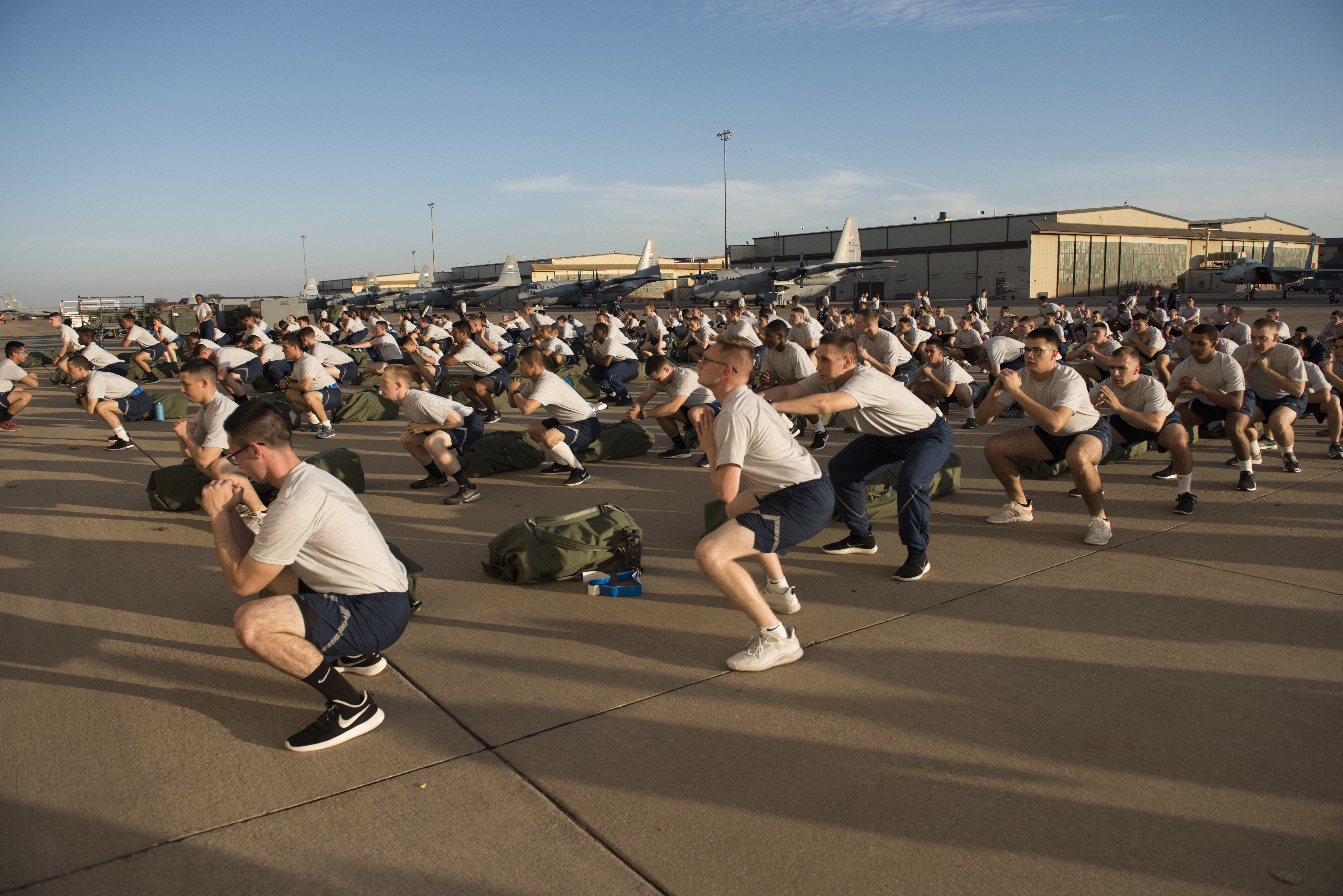
Physical fitness is the second biggest drag on troops' deployability, Vice Chairman of the Joint Chiefs USAF Gen. Paul Selva told reporters. Air Force photo by Alan R. Quevy.
As the services do a deep dive into improving readiness, two key issues seem to be hurting the deployability of individual troops the most: administrative roadblocks and the physical fitness of the troops themselves.
Gen. Paul Selva, vice chairman of the Joint Chiefs of Staff, told reporters in Washington earlier this week the services “have begun the process of focusing on individual readiness for deployability,” and “it’s interesting the things you find when you shine a bright light on an issue.”
The “principal reason” rendering individuals not eligible to deploy is that they have not checked off the administrative events needed to do so. Biggest among these are dental certifications and shots, Selva said. While some of that is negligence on the part of the troops who have to do these things, “you look at the number of installations where we no longer have dental clinics, and we depend on sending people out to contract dentists … it’s actually predictable that the force is not going to be available to deploy for that reason.”
Selva said he schedules dental work, shots, and flight physicals all at once and regularly, to set an example, noting there are some 14 innoculations necessary to be ready to deploy. But it’s a chore.
The second biggest drag on individual deployability, he said, is “actual physical fitness. … I don’t have the numbers, but a marginally increasing number of individuals across the services are not able to pass their basic physical fitness tests to serve in their respective services. Each service has a slightly different test,” he noted.
“One of the standards,” he continued, “is your weight and body mass. And there is a detectable and increasing trend toward people not being able to meet that standard. That means that without a waiver, they’re not able to deploy.”
Selva said the situation “starts as a unit-level leadership challenge. But the institution is a contributor.” He said the Defense Department “can’t hold the local leader responsible,” if it doesn’t “make the services and treatments available.”
But for weight, fitness, and getting things done that can be done, “those are local-leader standards,” at the senior- and mid-grade noncommissioned officer level. “It’s up to the local leader to say: the standard is published and exists, and we’re going to enforce it.”